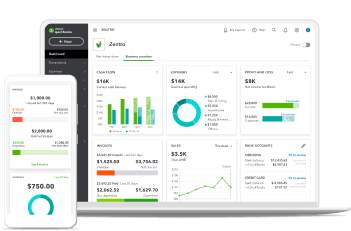Around a third of all Australian home loans are for investment properties. So, if you plan to invest in property, you need to know the expenses that come with such an investment and the possible tax deductions. The ATO is planning to crack down on incorrect tax returns from rental or investment property. It has never been more important for investors to know what they can and can't claim come tax season.

Investment Property Tax Deductions
Types of Investment Property Tax Deductions
If you have recently purchased an investment property or you are planning to purchase, you need to know the potential tax consequences and what deductions you are eligible to claim.
Rent
The rental income you receive on investment property is taxable. If you want to claim all of the possible expenses, the rental income needs to be at the normal market rate. If you choose to rent below the normal market rate, you can claim deductions up to the amount charged. You need to declare it the year you receive it.
Interest Claims
You can deduct the interest you pay on home loans for investment property. This is assuming the total loan was used to purchase the property.
Advertising Fees
You can't earn any income from your investment property until you have the right tenants, and that will require marketing and advertising. When you handle the advertising yourself, you can claim the expenses as deductions. If you use a property management agency, advertising fees fall under their purview, so you cannot claim it as an additional deduction.
Tax Deductions
You can deduct the costs of repairs and maintenance if you complete the work within 12 months of purchase. You can use this to reduce your capital gains tax CGT.
You cannot claim the full amount for improvements; you need to depreciate them over the span of their effective life. You can deduct expenses such as bank charges, council rates, advertising for tenants, lease costs, land tax, legal expenses, cleaning, pest control, body corporate fees, insurance, electricity, gas, gardening, property agent fees, security, water charges, stationery, telephone costs and more.
If you rent out all or part of your home, the income you receive in rent is classed as assessable income. This investment income is taxable income and should be declared on your tax return at the end of the financial year. That includes any income you gain from rental properties like Airbnb. You may be able to receive partial tax deductions on expenses relating to the property, such as insurance, mortgage interest, utilities, and council rates.
Repairs & Maintenance
You can gain significant deductions on maintenance and repairs you carry out on your rental property. Repairs are classed as work undertaken to repair or fix a deteriorating item, such as repairing a broken fence. Maintenance could be classed as something that prevents damage, such as sealing a deck. Capital improvements are when the item's value or condition is improved beyond the original state. A common capital improvement example would be retiling the bathroom, which you can use to claim depreciation.
You can also claim for the cost of a property agent and management fees, advertising fees, property insurance, maintenance fees, rates, strata fees, taxes, pest control, and home loan interest.
Investment Property Tax Benefits
There are plenty of investment property deductions available to property investors. Any rental income you receive from renting out the whole or part of your property must be claimed on your income tax and is subject to your marginal tax rate. There are also benefits to the taxes you are liable for as a property investor.
Negative Gearing
Investment in residential property comes with many benefits, and negative gearing is perhaps one of the most advantageous. Negative gearing is when the property's rental income is lower than the expenses. So, if you have an investment property making a loss, you can gain significant tax benefits when you claim a deduction for the loss to offset your taxable income.
Capital Gains Tax on Investment Property
Capital gains tax on properties comes into play when you sell the property or asset. If you sell your asset for more than the initial sale price, this profit is known as a capital gain and you will need to pay capital gains tax. If it sells for less than you paid, you do not need to pay capital gains tax.
You can use capital losses from prior fiscal years to offset your capital gains and possibly gain an exemption from CGT. Capital gains on investment property are applied to profits and gains are added to assessable income. Capital gains tax can eat into the profit you make from selling property but, you will pay half the amount of CGT if you hold the property for over 12 months before you sell.
FAQs
How QuickBooks Taxes can Help
QuickBooks Tax Software can help keep you organised when it comes time to lodge your tax return, your details records are only a click away. With the combination of reputable tax software and an experienced financial advisor, you never need to stress through another tax season.
Related Articles
Looking for something else?

TAKE A NO-COMMITMENT TEST DRIVE
Your free 30-day trial awaits
Our customers save an average of 9 hours per week with QuickBooks invoicing*
By entering your email, you are agree to our Terms and acknowledge our Privacy Statement.















